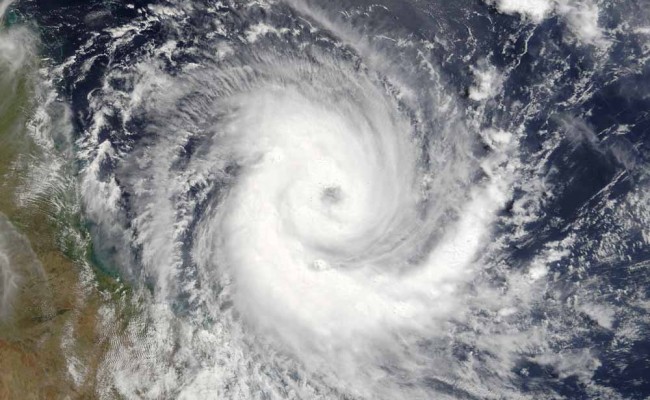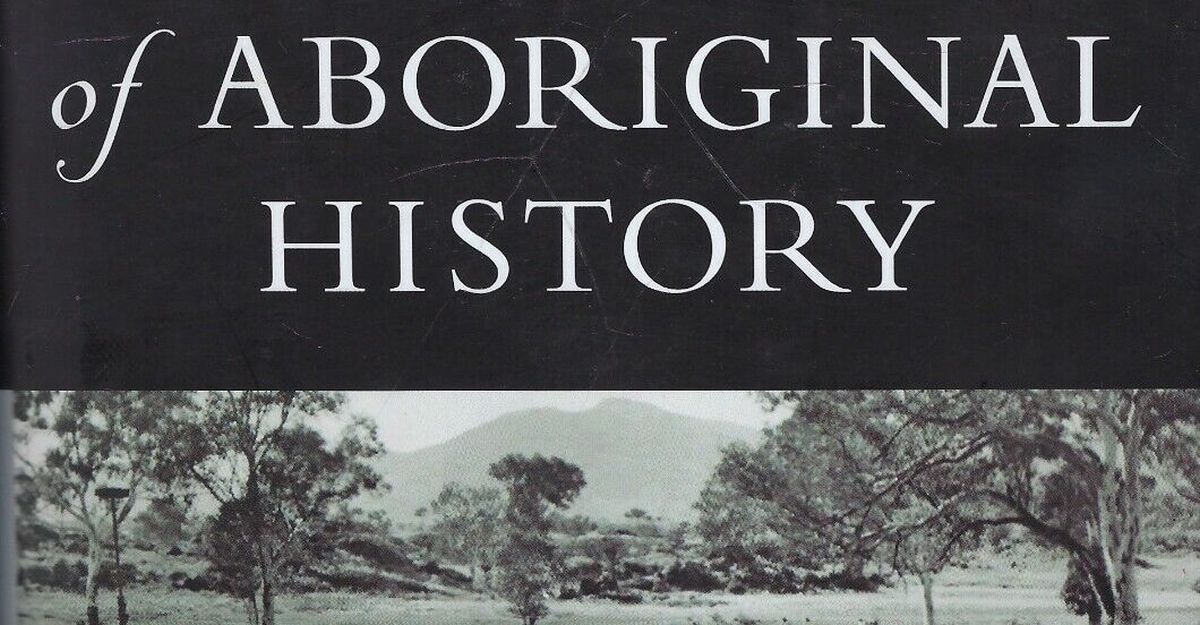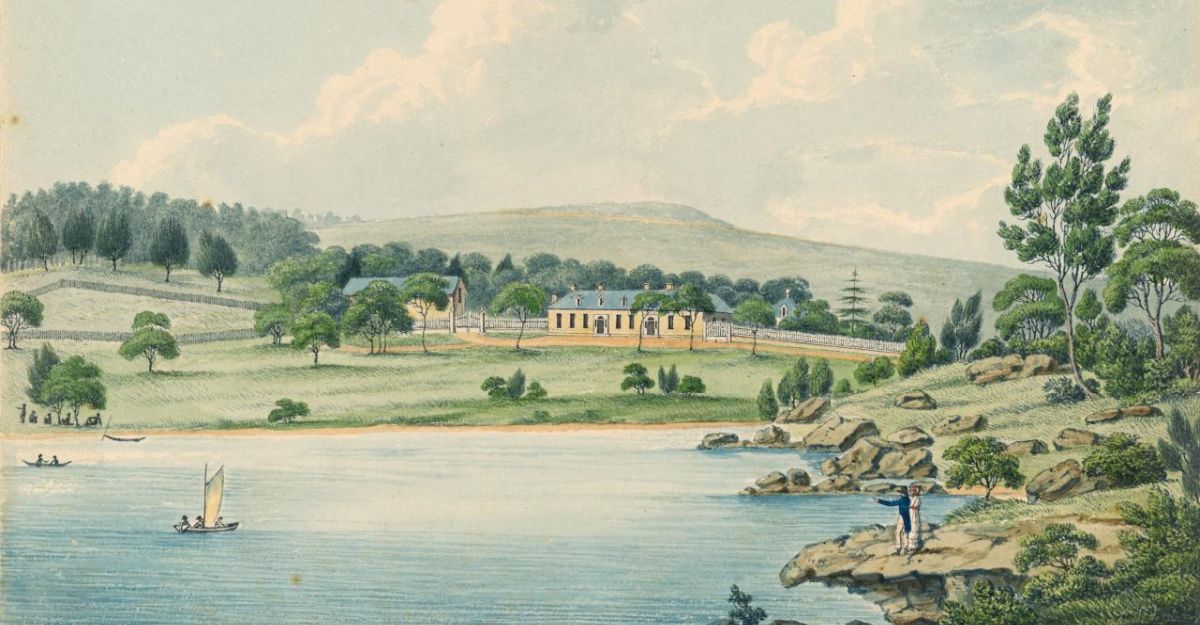It took a full two days for the post-cyclone rain to ease. It didn’t stop entirely, but the clouds thinned and the sky brightened – a glow from behind the silvery-grey canopy, reminding everyone that somewhere up there a sun still shone, even if they couldn’t quite see it. The Big River population began emerging from their houses, most of them frazzled with cabin fever, except for Jimmy who had slept soundly in his cell for the best part of forty-eight hours. But then, rumours suggested he had once slept through some boys from Gypsy Creek drunkenly driving a car through his back door.
‘Hey copper!’
Jimmy’s voice rang out from down the hallway. Sergeant Biggs rolled his eyes. He was not in the mood. The power lines were down in several places and the generators had been switched off for safety reasons. The power company wasn’t able to say when it could get workmen in to fix them – the rain would have to stop first. There were a few long-range mobile phones in the region, but reception spluttered in and out in Big River as it was and the storm had damaged the mobile phone tower in Cockatoo. Sergeant Biggs, who saw no other option but to take charge in situations like these, was trying to convince Remote Health NT to fly them out a portable generator but the only pilot they could find to risk the volatile weather was a rookie and self-confessed adrenaline junkie. The pilot was keen but the Health Department considered him an EHS nightmare.
‘Heeeyyyy kopaman!’
Sergeant Biggs was used to some of the local blokes being drunk what seemed like constantly, but Jimmy was something else. His file in the station filing cabinet had a drawer all to itself. Countless instances of drunk and disorderly. Hospitalised on multiple occasions. Airlifted to Darwin seventeen times in the previous year alone. He would stay in emergency for up to forty-eight hours, depending on how messy he was, get his stomach pumped and then fatten up again on hospital food. When they kicked him out, he’d hitchhike his way back to Big River, more often than not making the pub his first stop on the way home. His kidneys were still functioning, which was miraculous, as was the fact that he had so far avoided brain damage and cirrhosis. He had a reputation for being a bit of a kook, but not a dangerous one. In fact, he was generally well liked, and a favoured drinking companion of the contracting stockmen who knew they were in for some decent entertainment when Jimmy was around, even if it was impossible to understand what he was saying when he was on the sauce. He never started fights, and if they began around him it was because someone else had thrown the first punch. He had no problem hitting back in self-defence, though, and fought remarkably dirty for someone with such an obvious self-induced handicap. Sometimes he had to be arrested simply for his own good. Such had been the case this time around.
So Jimmy had managed to sleep through the entire cyclone. He had woken up a few hours earlier to the pounding rain, wondering what all the noise was. He also had a riotous case of the munchies and Sergeant Biggs had angrily parted with the last of his corn chips just to shut him up.
‘Copper! Hey, Sarge!’
‘What do you want now, Jimmy?’
‘What you makin all that racket for last night?’
‘It was a cyclone, Jimmy.’
‘Eh? No! True god?’
‘True’s you live.’
‘Well, I bin sober all night, eh,’ Jimmy said. His wet brown eyes flicked from side to side, trying to focus through the straggly hair that fell in front of his face. ‘Maitbi you let me out now?’
‘It’s still raining pretty hard, Jimmy. If I let you out you gotta go straight home. Last time I let you stick around the station you nicked my watch.’
‘Nah, not true! I jus borrow it. I gibit back!’
‘After you sold it for grog money, and then had it sold back to you by the same bloke.’
Jimmy looked hurt. ‘I gib you back that watch! I bin plenty good anyway, Sergeant. You haven’t bin seein me for long time.’
‘You were drunk at nine in the morning!’
Jimmy grinned. ‘Yeah, but I bin celebrating.’
‘Right.’
‘It’s me birthday!’
‘Sure it is,’ the sergeant retorted, but unlocked the door anyway.
Jimmy swaggered out the front door. ‘Oh, cheers for them corn chips, copper.’
The sergeant recoiled. ‘Shit, Jimmy, go have a bath or something, willya?’
Jimmy shuffled down the slippery steps, peered about at the rain, grinned and said, ‘Got me bogi right here!’
The rain may have eased but the water kept rising. The lowest-lying houses close to the river had only just avoided being washed away by the initial surge and the water now lapped at their doorways. A fetid smell permeated the air as septic tanks flooded.
Bess stood on the rain-soaked verandah and surveyed the street. The tattoo on the roof had been going on so long it had become like background music. The scaly bitumen road past the door was a creek now. Water streamed down the centre of the road towards the football oval, pooling in ditches and around doorsteps. The oval itself was becoming a lake. She could hear the clunking and scraping of people not far away, voices through the rain, stark and clear the way morning sounds are, punctuated by the croak of toads from gloomy shadows beneath sheets of tin and discarded car tyres. And underneath it all, the roar of the river. She couldn’t usually hear the river from the house.
The morning of the cyclone, Bess had seen the dragonfly again. She had seen it every morning for seven days. On the first day it had flown through the louvres at dawn and landed on the end of her bed. Its wings, like the finest slivers of cracked glass, glinted in the early morning light. It shifted around on the foot of the bed as if to get a better look at her, and Bess watched it, perfectly still, until a thump, and the patter of Stuart’s running feet from the next room, disturbed it and it rose from the bed, making a quick exit back through the gaps in the shutters.
On the second day, it had flitted inside while Bess was making tea. It perched on the fridge door, flicking its wings occasionally. Bess had tried to shoo it outside but it darted away from her hands and hovered a few inches above the fridge before settling down again.
On the third day, she’d caught it clicking and buzzing behind her head, just out of eyesight, as she sat on the verandah with her grandmother in the late afternoon, listening to the cockatoos.
It had sought her out every day for the rest of the week, and on the last day had followed Bess and her sisters up to the mango tree hill. She’d seen it zigzagging towards her, a few inches above the ground, and she’d recognised its wings, catching the light like spider webs between the blades of grass. Just as she’d been wondering why it had come, the first breath of Cyclone Persida had gusted in, snatching up the playing cards, rubbish and loose clothing.
Forgetting the dragonfly, Bess and her sisters had run back to the house and pulled inside everything the wind hadn’t already got its hands on. Bess remembered catching Anunciata’s arm as she darted past. ‘Which way the Old Fella?’ she yelled. Anunciata had thrown her a stricken look and ushered Stuart indoors.
Bess had stood at the edge of the porch as the first spits of rain stung her toes and forearms, hollering into it for her father. The growing wind twisted the words into an indistinguishable howl and sucked them up into the darkness that was fast swallowing the town. Anunciata grabbed her by the back of her T-shirt and hauled her inside. Bess tried to pull the screen door shut behind her but the wind wrenched it out of her hand and slammed it against the outside wall. It took two more attempts on the screen and three sets of hands pushing the heavy front door before they managed to slide the bolt home.
In the kitchen, Marguerite was securing breakables and unplugging electrical appliances. Lucy was doing the same in the living room: the television, the fridge, the radio. Any minute now, the leaks in the roof that always appeared during wet season would start up again with a vengeance. The girls ran through the house collecting buckets, bowls, tin cans and empty jars and scattered them on the floor to catch the streams. Stuart stood in the middle of the kitchen and started to cry, his escalating sobs drowned out by the storm siren which finally announced with an intrusive wail what most of Big River already knew: just off the coast an eye had opened up in the sky, surrounded by a swollen wall of cloud.
It was Anunciata’s idea to drag the mattresses from the bedrooms into the centre of the living room, which was the only place where the roof was guaranteed not to leak. With the shutters secured and the doors bolted, and all the lights switched off save for a floor lamp in the corner of the room, Anunciata and Lucy curled up together on the mattresses, Stuart between them, pulling the blanket over themselves – less for comfort than for warmth. Marguerite took up position in her rocking chair, watching the front door through half-closed eyes as it rattled on its hinges in the clamouring wind.
Bess didn’t lie down with her sisters. Instead, she sat bolt upright on the edge of the mattress, legs crossed, eyes darting around the room. Storms usually came as a relief to her, particularly after months of build-up, of escalating humidity and static electricity crackling through the swamps. She felt there was calm to be found in the midst of the tempest, as though the storms played music in her head.
But this was no ordinary afternoon storm, and when the rain finally thundered onto the roof, she felt like it was pounding every nerve. The crashes that rang out through the dark would jolt her before another howl of wind ate them up. The shutters on the windows shuddered with every piece of debris that hit the house and through the cracks she could see diagonal sheets of rain and the silhouettes of trees, twisting and arching in the wind like church people, bending forward as if they were praying. Jesuits on their knees at the altar. The trees saying white prayers to the storm spirits. And was it night yet, or just so very dark?
Anunciata murmured for a little while to Stuart who wanted to know if kingfishers could survive a cyclone. Bess wanted to sleep but as the dark grew deeper, so did that heavy feeling in her belly, an uncomfortable weight low in her guts. She’d seen her father and brother leave early that morning. She’d seen them drive off in the direction of the beach and she knew that they hadn’t come back. It wasn’t like they’d never been away during a storm before, but this wasn’t a usual storm. She’d never known that siren to sound so late. And try as she might, she couldn’t stop thinking about that dragonfly.
The lamp in the corner blinked. Flashes of lightning – split-second splinters of bright white light – shot through the cracks between the louvres. Bess could see the glint of her grandmother’s eyes still fixed on the front door.
The power went out.
Marguerite’s ululations were quiet at first, like the cries of a far-off animal. Lucy and Anunciata, who Bess had assumed were sleeping, sat up on hearing their grandmother’s voice. It wasn’t quite crying, but not quite like singing either, and the girls whispered to one another as their grandmother’s voice rose against the clamour of the storm. Bess crept over to Marguerite and sat at her feet, sliding her slender fingers into her grandmother’s fist, which gripped the side of the rocking chair.
‘Bubi,’ she said through the dark, pensive and tense. ‘Bubi, I bin wariyinabat too.’
That was two days ago. And it was two days ago now that the Old Fella and Marty had left the house. Nobody had heard from them since and Bess was so anxious she felt like she might snap. Every day without knowing the whereabouts of Marty or the Old Fella was one day more that her grandmother didn’t eat. So, barefoot, and with a phone number scrawled on her arm in black permanent marker, Bess slipped off the front steps and into the stream, following the sound of the voices.
The wind had finally died away late the previous night and people were starting to open their windows and doors in an attempt to air out the humid fug that had accumulated inside their houses. Bess made her way through the town in the rain, down the gentle slope in the road, wading in the shallowest places, navigating the debris, taking care not to step on rubbish, snakes or toads. A piece of broken glass stabbed into her heel and she pulled it out with her fingernails. Blood washed into the tumult.
Archie, with his gammy leg, was watching his nephew remove a large branch that had crashed onto the roof of his house. Archie’s wife, Daisy, was standing on the porch of her sister’s house opposite, giving orders. Bess paused for a moment and watched as Archie’s nephew attempted to dislodge a piece of tin from under the branch. He gave it a good hard tug and it slid a few inches, but in the process the branch itself fell further into the hole in the roof. Bess sniggered. Daisy caught the snigger and shot her a poisonous look. Bess didn’t bother averting her eyes and asked instead if Daisy had seen Marty or the Old Fella.
‘Seen your mother,’ said Daisy.
‘Where?’
‘At the pub. The other day, before.’ She made a sign to indicate the cyclone. ‘She be gettin proper pissed, eh.’
Bess scowled and kept walking. Daisy liked nothing better than to talk behind a person’s back. If she didn’t have any gossip, then she didn’t hesitate to make something up. And if Daisy had seen Bess’ mother at the pub, then the rest of the town would know about it by now, too. The thought made Bess feel sick. Kindly, Daisy was known in Big River as the sort of woman who was prone to gossip. To Bess, Daisy was a fat old dorris who should get her ugly great nose out of everyone else’s business.
There were six public phones in Big River, three of them on the road between Bess’ house and the general store. One of them had been torn right out of the ground, the phone booth itself in pieces against a nearby tree. When Bess lifted the receiver of the next one, in an alcove next to the women’s shelter, she found it was dead. That left only the phone box planted on the concrete island in the middle of a very green lawn outside the general store. It was rarely used because during the wet, the lawn was plagued by tiny green frogs, which stuck to the walls of the booth and slapped against the legs of any unsuspecting gossipers who happened to be standing in their way. When Bess reached the store, she found a group of women sitting under the verandah, waiting in line. The phone was being used by David, the government-appointed bureaucrat on the local council, who was attempting to coordinate some cyclone relief efforts from Darwin.
‘Heard about your mother,’ said one of the women. Bess made no reply, and stared at the ground.
When David finally finished, Old Molly took over the phone and called her daughter in Gypsy Creek. She then began telling the women sitting round about what was going on with each of their families. As it turned out, Bess received most of the information she wanted well before she had the phone to her own ear. The Gypsy Creek mob had seen Marty; in fact, he was on Bess’ mother’s sister’s living room floor at that very moment. There was no news of the Old Fella. Marty either didn’t know or wouldn’t say. In fact, he wasn’t talking at all. He’d spent the last day and a half lying on a mattress in Auntie Larissa’s living room whimpering, and Auntie Larissa was very worried about him.



